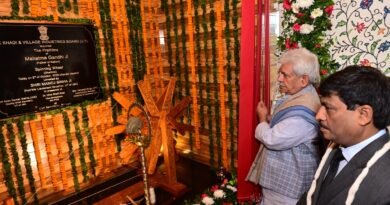High Court admits PIL challenging LG’s power to nominate 5 Assembly members
SRINAGAR: The J&K and Ladakh High Court on Monday admitted a public interest litigation (PIL) challenging the powers of the UT’s Lt Governor to nominate 5 members to the Assembly.
A special bench was constituted to hear the PIL by Chief Justice Tashi Rabstan. It comprises Justices Sanjeev Kumar and Rajesh Sekhri.
The matter was heard by the court on Monday and December 5 was fixed for final arguments in the PIL.
Solicitor General Tushar Mehta appeared for the UT government while senior advocate D.K.Khajuria appeared for the petitioner, Congress leader Ravinder Kumar Sharma.
The PIL pleads that the power of the Lt Governor to nominate five members to the Assembly without the advice of the Council of Ministers is against the basic spirit of the Constitution.
Under the J&K Reorganisation Act 2019, read with the J&K Reorganisation Amendment Act 2013, the Lt Governor, on the advice of the Union Home Ministry, can nominate 5 members to the J&K Assembly. These nominated members, comprising two women, two Kashmir Pandit migrant representatives, at least one of them being a woman, and one representative of the West Pakistan refugees, would have the power to vote during government formation on the Puducherry model.
The petition was filed in the Supreme Court which declined to hear it and suggested that the petitioner approach the high court first.
However, given the present strength of the NC government headed by Omar Abdullah, even if all the 5 nominated members voted against it, it will not fall.
The NC has 42 members and is supported by six members of the Congress, one each of the CPI-M and the Aam Aadmi Party (AAP) and 6 Independent MLAs. This makes a total of 56 MLAs while the simple majority even out of a 95-member Assembly (90 elected plus 5 nominated) would be 48 only. However, the NC’s strength will soon drop by one as Chief Minister Omar Abdullah, who was elected from both Budgam and Ganderbal, has said that he will retain the latter. (IANS)




